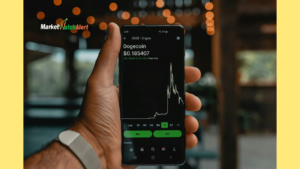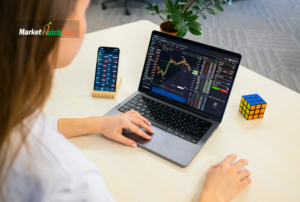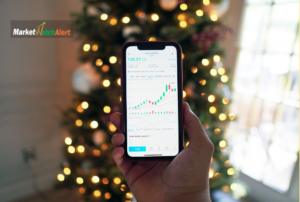Picking the right crypto exchange is a basic stage in your computerized cash adventure. Whether you’re a painstakingly pre-arranged vendor or a youngster, finding a phrase that suits your necessities can in a general sense impact your trading experience. This extensive aid will walk you through the vital variables to consider while choosing a crypto trade, guaranteeing you settle on an educated choice.
Figuring out Various Sorts of Crypto Trades
Unified Trades (CEX)
Brought together trades are conventional stages where exchanges are overseen by a focal power. These trades regularly offer high liquidity, an extensive variety of exchanging matches, and high-level exchanging highlights. In any case, they moreover anticipate that clients should endow the stage with their resources and individual information.
Decentralized Trades (DEX)
Decentralized trades work without a focal power, permitting clients to exchange obviously with each other. DEXs offer more noteworthy protection and security, as clients hold control of their assets. Notwithstanding, they frequently have lower liquidity and fewer exchanging matches contrasted with brought-together trades.
Hybrid Exchanges
Cross-breed trades mean joining the advantages of both CEX and DEX, offering high liquidity and high-level elements while keeping a more significant level of client command over reserves. These stages are as yet arising yet hold guarantee for the eventual fate of digital money exchanging.
Key Elements to Consider

Security
Security ought to be your first concern while picking a crypto trade. Search for stages with powerful safety efforts, including two-factor validation (2FA), cold capacity for assets, and normal security reviews. Research the trade’s set of experiences for any past security breaks and how they were dealt with.
Liquidity
Liquidity insinuates how assets can be exchanged without affecting their expense. High liquidity ensures smoother and faster trades. Concentrated trades normally offer higher liquidity because of their bigger client base and exchange volume.
Fees
Look at the expense design of the trade, including exchanging expenses, withdrawal expenses, and some other secret charges. A few stages offer lower expenses for high-volume dealers or clients who hold the trade’s local token.
User Experience
An easy-to-understand interface and responsive client care are fundamental for a positive exchange experience. Search for trades that offer instinctive routes, thorough assistance guides, and brief client care.
Upheld Cryptographic forms of money
Guarantee the trade keeps a wide combination of cryptographic sorts of money, particularly the ones you are enthused about exchanging. Two or three phases spin around well-known coins like Bitcoin and Ethereum, while others offer a more noteworthy confirmation, including altcoins and arising tokens.
Administrative Consistency
Pick a trade that follows applicable guidelines in your locale. Administrative consistency guarantees the stage works inside the law, giving an additional layer of safety and dependability.
Comparing Top Crypto Exchanges

Exchange Type Security Features Fees Liquidity Supported Cryptos User Experience
Binance Centralized 2FA, Cold Storage, Security Audits Low trading fees High 500+ User-friendly, 24/7 support
Coinbase Centralized 2FA, Insurance, Cold Storage Higher trading fees High 100+ Easy to use, mobile app
Kraken Centralized 2FA, Cold Storage, Regular Audits Competitive fees High 70+ Advanced features, 24/7 support
Uniswap Decentralized Non-custodial, Smart Contracts Variable transaction fees Moderate 1000+ Simple interface, DEX
KuCoin Hybrid 2FA, Cold Storage, Internal Audits Low trading fees High 250+ Intuitive design, extensive support
Steps to Choosing the Best Crypto Exchange
Identify Your Needs
Decide your exchanging objectives, favored cryptographic forms of money, and particular elements you require, for example, edge exchanging or marking.
Research and Compare
Use the comparison table above to evaluate different exchanges based on key factors such as security, fees, and upheld cryptographic forms of money.
Read User Reviews
Look for feedback from other users to gauge their experiences with the exchange. Pay attention to common issues or praises mentioned in reviews.
Test the Platform
Make a record and investigate the stage’s connection point and elements. Many trades offer demo accounts or testnet adaptations to work on exchanging without risk.
Consider Customer Support
Ensure the exchange provides reliable customer support. Test their responsiveness by reaching out with questions or concerns.
Check for Administrative Consistency
Verify that the exchange complies with regulations in your country. This adds a layer of protection and legitimacy to the platform.
Detailed Analysis of Key Factors
Security Measures
While surveying the security of a crypto trade, think about the accompanying:
Two-Variable Validation (2FA): This adds layer of safety by requiring two types of checks before getting to your record.
Cold Capacity: The most secure method for putting away digital currencies is disconnected, away from web access, limiting the gamble of hacking.
Insurance Contracts: A trades offer protection to cover misfortunes from security breaks.
Customary Security Reviews: Autonomous reviews can guarantee that the trade’s safety efforts are state-of-the-art and compelling.
Liquidity and Volume
Liquidity is essential for executing huge exchanges rapidly without causing critical cost vacillations. High liquidity commonly shows a sound exchanging climate with numerous dynamic members. Take a gander at the 24-hour exchanging volume of trade to measure its liquidity.
Fee Structure
Crypto exchanges generate revenue through various fees. These may include:
Exchanging Charges: Typically a level of the exchange sum, these can shift in view of the client’s exchanging volume or whether they are a market producer or taker.
Withdrawal Charges: Expenses for moving assets from the trade to an outer wallet.
Store Expenses: Albeit more uncommon, a few trades charge charges for saving assets.
Other Secret Expenses: Consistently read the fine print to keep away from unforeseen charges.
User Experience and Support

A consistent client experience can have a huge effect, particularly for fledglings. Consider the following:
Interface Plan: The stage ought to be instinctive and simple to explore.
Instructive Assets: Instructional exercises, online classes, and complete FAQs can assist clients with understanding how to successfully utilize the stage.
Client care: Fast and accommodating help is fundamental. Test the responsiveness of client assistance through live visits, email, or telephone.
Upheld Cryptographic forms of money
Various trades support differing quantities of digital forms of money. Guarantee the trade you pick upholds the coins you are keen on exchanging. While certain stages center around famous digital forms of money like Bitcoin and Ethereum, others offer a more extensive scope of altcoins and arising tokens.
Administrative Consistency
Consistent with administrative guidelines is critical for the authenticity and security of a trade. Check if the platform:
Is Authorized and Directed: Search for data on the trade’s site about its licenses and administrative consistency.
Complies with KYC and AML Regulations: Know Your Client (KYC) and Hostile to Illegal tax avoidance (AML) regulations assist with forestalling misrepresentation and improve security.
Works inside Legitimate Limits: Guarantee the trade conforms to the regulations in your locale to keep away from lawful issues.
Advanced Features to Look For
A few trades offer high-level elements that might help experienced merchants:
Edge Exchanging: Permits clients to acquire assets to exchange bigger positions, expanding expected benefits and dangers.
Marking and Yield Cultivating: Empower clients to acquire prizes by holding specific cryptographic forms of money or giving liquidity to the trade.
Prospects and Choices Exchanging: Offer ways of supporting dangers and estimate cost developments.
Conclusion
Picking the best crypto trade requires cautious thought of different elements, including security, liquidity, expenses, client experience, upheld digital currencies, and administrative consistency. By figuring out your necessities and completely investigating your choices, you can find a stage that improves your exchanging experience and assists you with accomplishing your digital money objectives.
FAQs About Picking the Best Crypto Trade
What is a crypto trade?
A crypto trade is a stage where clients can purchase, sell, and exchange modernized money-related norms.
How do concentrated and decentralized trades contrast?
Unified trades are overseen by a focal power, offering high liquidity and high-level elements. Decentralized trades work without a focal power, giving more noteworthy protection and security.
For what reason is security significant in a crypto trade?
Security guarantees the insurance of your assets and individual data, decreasing the gamble of hacks and extortion.
What are exchanging expenses?
Exchanging expenses are charges forced by the trade for executing trade orders. These can change given exchanging volume and different elements.
How does liquidity influence exchange?
High liquidity guarantees smoother exchanges with insignificant cost influence, making it more straightforward to rapidly trade resources.
What is two-factor validation (2FA)?
2FA is a safety effort that requires two types of checks prior to getting to a record, improving record security.
What would it be advisable for me to search for in client assistance?
Responsive and learned client care can assist with settling issues rapidly and work on your general involvement in the trade.
For what reason are withdrawal expenses significant?
Withdrawal expenses are charges for moving assets from the trade to an outer wallet. High expenses can influence your general exchange costs.
What is cold storage?
Cold capacity alludes to keeping digital currency disconnected, away from web access, to safeguard against hacks.
What is a native token?
A local token is a cryptographic money given by the trade, frequently giving advantages like decreased exchanging charges or admittance to select elements.
How would I check a trade’s administrative consistency?
Actually take a look at the trade’s site for data on administrative licenses and consistence with nearby regulations.
Can I use multiple exchanges?
Indeed, utilizing various trades can enhance your exchanging choices and give admittance to various digital forms of money and elements.
What is edge exchanging?
Edge exchanging permits clients to get assets to exchange bigger positions, expanding possible benefits and dangers.
For what reason is client experience significant?
An easy-to-use connection point and smooth route can improve your exchange effectiveness and fulfillment.
What are altcoins?
Altcoins are automated financial principles other than Bitcoin, offering different highlights and use cases.

